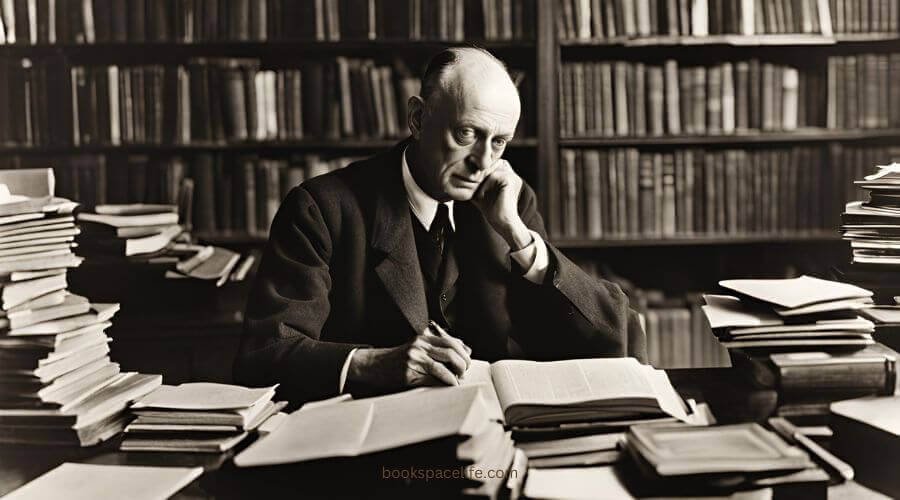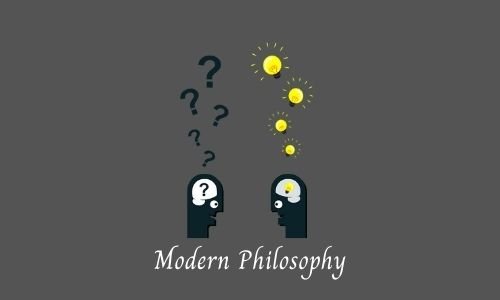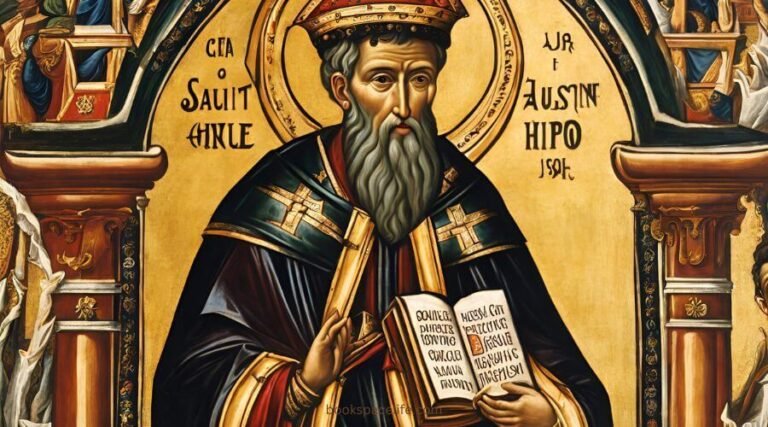Philo of Alexandria
Reinhold Niebuhr: A Theologian, Philosopher, and Advocate for Social Justice
Reinhold Niebuhr is one of the most influential American theologians and philosophers of the 20th century.
His ideas about morality, politics, and Christian ethics continue to shape modern theological discourse, especially in the context of social justice, the nature of human beings, and the relationship between faith and politics.
His critical insights into the moral complexities of society, the human condition, and the role of religion in public life have made Niebuhr a vital figure for both religious thinkers and political philosophers alike.
Table of Contents
(1) Early Life and Education
Reinhold Niebuhr was born on June 21, 1892, in Wright City, Missouri, to a German immigrant family.
His father, Gustav Niebuhr, was a Lutheran pastor, and his mother, the daughter of a pastor, instilled a strong religious foundation in him. Growing up in a devout Christian household, Niebuhr was encouraged to pursue a life of service, grounded in the Lutheran faith.
This early exposure to both religious devotion and intellectual inquiry would become central themes in his later work.
Niebuhr attended Elmhurst College in Illinois, where he initially pursued a general education. His early exposure to philosophy and social sciences shaped his intellectual pursuits.
After graduating from Elmhurst, Niebuhr went on to study at Yale Divinity School and then at the University of Michigan, where he earned a doctorate in theology.
During his time in Michigan, he was influenced by the liberal Christian tradition, especially the Social Gospel movement, which emphasized the need for Christians to work toward social justice and the transformation of society.
Niebuhr’s academic journey also led him to study at the University of Heidelberg in Germany, where he came into contact with the great German philosophers and theologians, including Karl Barth and Martin Heidegger.
This exposure to European intellectual traditions played a significant role in shaping his philosophical and theological views.
However, it was his engagement with the challenges of his own nation’s political realities that led him to develop his unique contributions to Christian thought.
(2) Early Career and Ministry
In the 1920s, Niebuhr began his career as a pastor, first at a church in Detroit, Michigan, and later in the urban neighborhoods of New York City.
It was during this time that Niebuhr began to grapple with the deeper moral and social issues of the day.
The grim realities of industrial capitalism, poverty, racism, and political corruption in the urban setting prompted Niebuhr to reconsider traditional Christian approaches to morality.
Niebuhr’s ministry in the church became a crucible for his philosophical and theological reflections.
His pastoral work led him to engage deeply with the challenges of human sin, social inequality, and the need for political action.
It was in this context that Niebuhr began to develop his ideas on the limitations of human nature, the role of the church in society, and the relationship between Christian ethics and political life.
(3) Niebuhr’s Philosophy and Theology
Niebuhr’s theological perspective is often described as Christian realism—a term that captures his emphasis on the imperfect, fallen nature of humanity.
At the heart of his philosophy was the conviction that while human beings are created in God’s image, they are also inherently sinful.
This duality—the capacity for good and the inevitability of sin—was a central theme in all of his writings.
In contrast to utopian ideologies that promised perfectibility for humanity, Niebuhr argued that human beings were deeply flawed and that social systems would always be prone to corruption.
(i) The Doctrine of Original Sin
Niebuhr’s philosophy was rooted in his view of human nature, which he developed through a distinctive interpretation of original sin.
In his seminal work, The Nature and Destiny of Man (1941), Niebuhr argued that human beings were naturally inclined to self-interest and power-seeking, making it difficult for them to build just societies.
Unlike some liberal theological traditions that tended to downplay the darker aspects of human nature, Niebuhr saw sin as a fundamental aspect of the human condition that could not be overcome by human effort alone.
For Niebuhr, this acknowledgment of humanity’s sinfulness led to a sense of humility and an awareness of the limitations of political and social systems.
Rather than offering idealistic solutions, Niebuhr’s theology emphasized the necessity of grace and the need for humility in the face of human imperfection.
(ii) Christian Realism and Politics
Niebuhr’s most influential philosophical contribution was his concept of Christian realism, which is rooted in a profound skepticism about the ability of political systems to create lasting peace and justice without recognizing human fallibility.
Christian realism emphasizes the tension between the ideal and the real, between the principles of the gospel and the limitations of human action.
For Niebuhr, moral action could not simply be about abstract ideals but had to be rooted in the messy and often contradictory reality of human history.
His views on political ethics were influenced by his criticism of the growing tendency to ignore the realities of power and corruption in political life.
In his book Moral Man and Immoral Society (1932), Niebuhr explored the ethical dynamics of individual and collective behavior.
He suggested that while individuals might be capable of selflessness and moral action, societies were inevitably selfish and driven by the pursuit of power.
This reality led Niebuhr to advocate for a “pragmatic” approach to politics that accepted the need for restraint and balance.
(iii) The Role of the Church in Society
Niebuhr believed that the church had a vital role to play in both challenging the injustices of society and shaping political life.
Unlike many theological traditions that saw the church as a purely spiritual institution, Niebuhr argued that the church had a responsibility to engage with the world in concrete, practical ways.
He believed that Christians were called to work for justice and social change, even while recognizing that true justice would not be achieved in this fallen world.
Niebuhr’s theology and philosophy also engaged deeply with the question of war and peace.
He famously argued that in the face of evil, Christians had a moral obligation to engage in just wars when necessary.
His concept of a “just war” theory emphasized the necessity of using force to stop greater evils, while always recognizing the tragic nature of such actions.
(4) Influence and Impact
Niebuhr’s influence extends far beyond the walls of academia and theology. His ideas resonated deeply with both religious and secular leaders, particularly in the context of the Cold War.
His reflections on power, sin, and the limits of human agency were highly influential in shaping the foreign policy of the United States, especially during the mid-20th century.
He played a key role in the National Conference of Christians and Jews and was a leading voice in American Protestantism.
Niebuhr’s theological and political views also influenced key figures such as Martin Luther King Jr., Barack Obama, and Jimmy Carter. King, in particular, cited Niebuhr’s ideas on justice and the ethics of nonviolent resistance, drawing from his concept of the “realist” approach to dealing with evil.
His ideas on human sin and the imperfection of political systems resonated with the challenges of civil rights activism and the struggle for racial equality.
In the academic world, Niebuhr’s work in Christian ethics and political theology has had a lasting impact.
Scholars in philosophy, political science, and theology continue to draw from his insights into the nature of sin, the role of the church in political life, and the ethical dilemmas faced by Christians in a complex and often unjust world.
(5) Conclusion
Reinhold Niebuhr’s life and work remain a testament to the complexities of living a Christian life in a broken and imperfect world.
His philosophy challenged the idealistic assumptions of both political liberals and religious conservatives, advocating for a pragmatic and humble approach to justice and politics.
His powerful critique of human nature and his call for humility, moral responsibility, and justice continue to inspire theologians, political thinkers, and social activists around the globe.
Niebuhr’s contributions to philosophy, theology, and social justice have left an indelible mark on modern intellectual thought.
His advocacy for a moral society that recognizes the realities of sin and power, and his commitment to a Christianity that engages with the world’s injustices, offer an enduring framework for understanding the challenges of faith, politics, and morality in the contemporary world.








